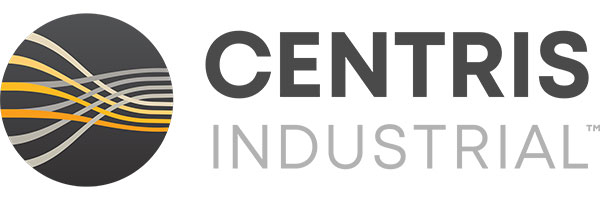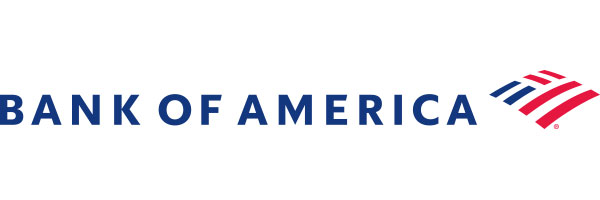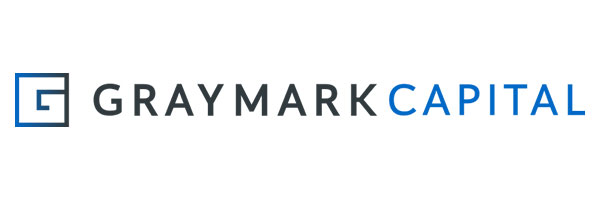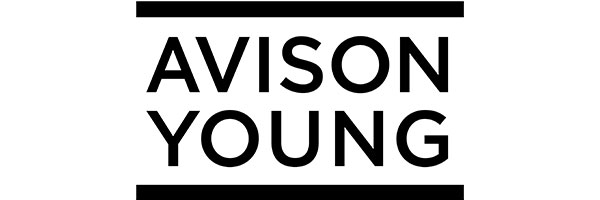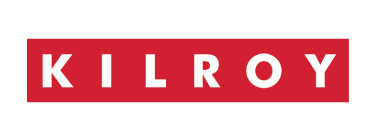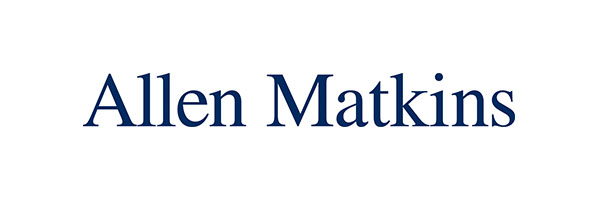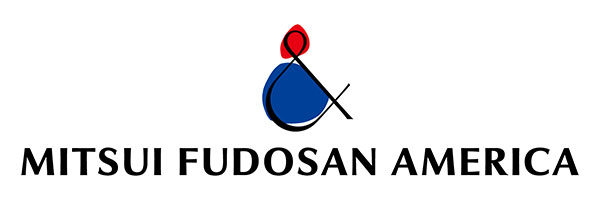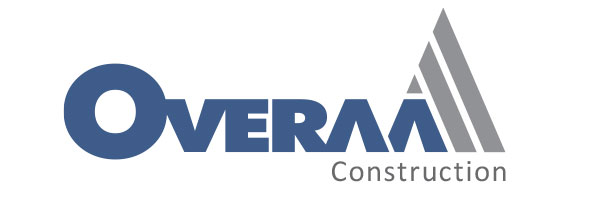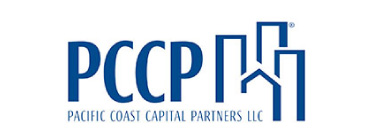CBPA's Legislative Update 7/15/19
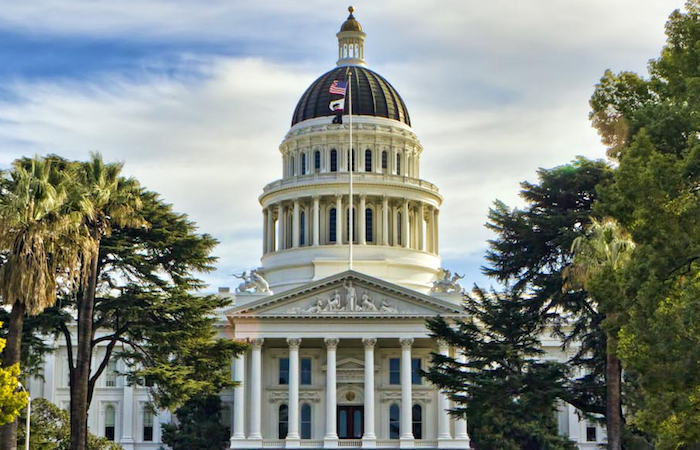
- ALL QUIET UNDER THE SACRAMENTO DOME – SUMMER RECESS
- SUMMER RECESS HIATUS
- RULING GUTS 2/3 TAX VOTE – WE WILL APPEAL!
- MAJOR BILLS LEFT
- CBPA 2019 CALENDAR
ALL QUIET UNDER THE SACRAMENTO DOME – SUMMER RECESS
The California Capitol is quiet now, as legislators have gone home for the traditional Summer Recess. At one time, this legislative break was a rare occurrence because of the chronic inability of the Legislature to pass a budget on time by a two thirds vote. That vote requirement was lowered by voters in 2010 by Proposition 25 and now budgets are passed and signed by their July 15 deadline on a regular basis.
SUMMER RECESS HIATUS
Since the Legislature has shuttered the Capitol to protect it from the 108 degree Sacramento Summer Days and gone home for break we hope that they and you get to spend some quality time with loved ones over the next few weeks for vacation.
Because of the lull in activity, the eWeekly will also take a little siesta until they come back in mid-August. But don’t worry, we will be here keeping an eye on the place and preparing for the final push of Session. And we will definitely alert you of any major breaking news.
RULING GUTS 2/3 TAX VOTE – WE WILL APPEAL!
On July 5 a trial court judge ruled on a case with huge implications for taxation of commercial properties allowing San Francisco official to impose special taxes with a simple majority vote of the public instead of a 2/3s vote required by the State Constitution. We will be appealing the decision.
In conjunction with the Howard Jarvis Taxpayers Association (HJTA), CBPA, BOMA California, and the California Business Roundtable filed suit in August in the Superior Court in San Francisco challenging the city's special tax on commercial property (Proposition C – passed in June 2018), which is an illegal and punitive gross receipts levy which will reduce commercial property values in the city by up to 12%.
Our lawsuit asserts that because the tax is expressly for a special purpose, it required a 2/3 vote of the city's electorate under Propositions 13 and 218. But it did not pass by that margin. Rather, the tax proposal, designated as Measure C, received a scant 50.87% vote.
The basis for the lawsuit is that the California Constitution clearly holds that special taxes at the local level have required a two-thirds vote of the electorate as mandated by Propositions 13 and 218.
Two propositions, both confusingly called “Proposition C” passed in 2018 and are subject to the suit.
Proposition C from June 2018, taxed the lease of commercial property for landlords with annual gross receipts of more than $1 million, at the rate of 1 percent of gross receipts for warehouse space and 3.5 percent of gross receipts for other commercial properties. The revenue is earmarked for the special purpose of funding childcare and early education programs and only received 51 percent of the vote.
Proposition C from November 2018kl, is a gross receipts tax imposed on businesses with more than $50 million in gross annual receipts within the city and county of San Francisco, with revenue dedicated to programs relating to homelessness. The measure “passed” with 61 percent of the vote.
The two-thirds vote requirement – a safeguard that requires communitywide consensus for tax increases that will impact the cost of living and economic competitiveness – has been upheld repeatedly by statewide voters, most recently via passage of Proposition 26, the Stop Hidden Taxes Act of 2010 cosponsored by our friends at the California Taxpayers Association.
Here are more details from our co-plaintiffs at the Howard Jarvis Taxpayers Association, “SF Trial Court Ruling a Temporary Setback for Prop 13.” Click here to read the full article.
MAJOR BILLS LEFT
As we enter into the final month of Session after Summer Recess, we continue to track several hundred bills. Here is some information on some of the major bills:
AB 5 (Gonzalez D) DYANAMEX. Worker status: employees and independent contractors.
Summary: Codifies the decision in the Dynamex case and clarifies its application. Real Estate Brokers are one of the professional classes that have been exempted from this measure. The bill would provide that the factors of the “ABC” test be applied in order to determine the status of a worker as an employee or independent contractor for all provisions of the Labor Code and the Unemployment Insurance Code, except if a statutory exemption from employment status or from a particular obligation related to employment or where a statutory grant of employment status or a particular right related to employment applies. We continue to work with the employer coalition to ask for several amendments to clarify issues related to sub-contractors and business-to-business transactions.
Position: SUPPORT IF AMENDED
AB 51 (Gonzalez D) Employment discrimination: enforcement.
Summary: Would prohibit a person from requiring any applicant for employment or any employee to waive any right, forum, or procedure for a violation of any provision of the California Fair Employment and Housing Act (FEHA) or other specific statutes governing employment as a condition of employment, continued employment, or the receipt of any employment-related benefit. The bill would also prohibit an employer from threatening, retaliating or discriminating against, or terminating any applicant for employment or any employee because of the refusal to consent to the waiver of any right, forum, or procedure for a violation of specific statutes governing employment.
Position: OPPOSE
AB 170 (Gonzalez D) Employment: sexual harassment: liability.
Summary: Would require a client employer to share with a labor contractor all civil legal responsibility and civil liability for harassment for all workers supplied by that labor contractor.
Position: OPPOSE
AB 349 (Choi R) Building standards: garages.
Summary: Would require the Department of Housing and Community Development, with the assistance of the Office of the State Fire Marshal, to investigate possible changes to the building standards that would require provision of a 2nd method of egress from a newly constructed residential garage or a newly constructed detached garage located adjacent to a single-family dwelling. We are concerned this bill is attempting to put building code in statute, which makes it very difficult to implement and adapt to many different building types. We are working with the author to make sure this bill does not negatively impact the building code process.
Position: NEUTRAL
AB 393 (Nazarian D) Building codes: earthquake safety: functional recovery standard.
Summary: Would require the California Building Standards Commission, by June 30, 2020, to assemble a functional recovery working group comprised of certain state entities and members of the construction and insurance industries, as specified. The bill would require the working group, by June 30, 2021, to consider whether a “functional recovery” standard is warranted for all or some building occupancy classifications, using specified criteria, and to investigate the practical means of implementing that standard. We have worked closely with the author over the past two years to assure this bill will enable positive policy and advance seismic safety while not being overly burdensome to property owners and managers.
Position: NEUTRAL
AB 485 (Medina D) Local government: economic development subsidies.
Summary: Current law requires each local agency, as defined, to provide specified information to the public before approving an economic development subsidy within its jurisdiction, and to, among other things, hold hearings and report on those subsidies, as provided. Current law defines “economic development subsidy” for these purposes to mean any expenditure of public funds or loss of revenue to a local agency in the amount of $100,000 or more, for the purpose of stimulating economic development within the jurisdiction of a local agency, as provided. This bill, on and after January 1, 2020, would similarly require each local agency to provide specified information to the public before approving an economic development subsidy for a warehouse distribution center, as defined, and to, among things, hold hearings and report on those subsidies, as provided. We have worked closely with the author and have been able to amend the bill to excise some of the objectionable language relating to labor issues and requirements for information that cannot be provided prior to tenant move in.
Position: MON/OPP
AB 516 (Chiu D) Deletes local authority to boot or tow vehicles.
Summary: Current law authorizes a peace officer and specified public employees, as an alternative to removal of a vehicle, to immobilize the vehicle with a device designed and manufactured for that purpose, if, among other circumstances, the vehicle is found upon a highway or public lands by the peace officer or employee and it is known to have been issued 5 or more notices of parking violations that are delinquent because the owner or person in control of the vehicle has not responded to the appropriate agency within a designated time period. This bill would delete the authority of a peace officer or public employee, as appropriate, to remove or immobilize a vehicle under those circumstances.
Position: OPPOSE
AB 520 (Kalra D) Public works: public subsidy.
Summary: Current law defines “public works” to include, among other things, construction, alteration, demolition, installation, or repair work done under contract and paid for, in whole or in part, out of public funds, but exempts from that definition, among other projects, an otherwise private development project if the state or political subdivision provides, directly or indirectly, a public subsidy to the private development project that is de minimis in the context of the project. This bill would provide that a public subsidy is de minimis if it is both less than $275,000 and less than 2% of the total project cost. The bill would specify that those provisions do not apply to a project that was advertised for bid, or a contract that was awarded before July 1, 2020.
Position: OPPOSE
AB 684 (Levine D) Building standards: electric vehicle charging infrastructure.
Summary: Would require the Department of Housing and Community Development and the California Building Standards Commission, by July 1, 2022, or the publication of the next interim California Building Code, whichever comes first, to research, develop, and propose building standards regarding the installation of future electric vehicle charging infrastructure for parking spaces for existing multifamily dwellings and nonresidential development, as specified. The bill would also require the Department of Housing and Community Development and the commission to review the standards for multifamily dwellings and nonresidential development every 18 months to update the standards as needed pursuant to that review.
Position: MONITOR
AB 729 (Chu D) Carpet recycling: carpet stewardship.
Summary: Current law imposes a carpet stewardship assessment per unit of carpet sold in the state that is remitted by carpet manufacturers to the carpet stewardship organization and may be expended to carry out the organization's carpet stewardship plan. This bill would, among other things, require a carpet stewardship organization to include in the carpet stewardship plan a contingency plan should the carpet stewardship plan expire without approval of a new carpet stewardship plan or should the carpet stewardship plan be revoked. The bill would require a carpet stewardship organization to set up a trust fund or an escrow account, into which the bill would require the organization to deposit all unexpended funds and ongoing consumer assessments, for use in the event that the carpet stewardship plan terminates or is revoked. We are concerned this bill will increase costs for carpet replacement and are unsure how that fee will be used to benefit the program.
Position: OPPOSE
AB 1066 (Gonzalez D) Unemployment insurance: trade disputes: eligibility for benefits.
Summary: Would restore eligibility for unemployment benefits after the first 4 weeks of a trade dispute for an employee who left work because of the trade dispute. The bill would specify that the one-week waiting period otherwise required for unemployment benefits is not additionally required under these circumstances. The bill would also codify specified case law that holds that employees who left work due to a lockout by the employer, even if it was in anticipation of a trade dispute, are eligible for benefits. The bill would specify that the bill’s provisions do not diminish eligibility for benefits of individuals deprived of work due to an employer lockout or similar action, as specified.
Position: OPPOSE
AB 1080 (Gonzalez D)/SB 54 (Allen D) California Circular Economy and Plastic Pollution Reduction Act.
Summary: Would enact the California Circular Economy and Plastic Pollution Reduction Act, which would require the Department of Resources Recycling and Recovery, before January 1, 2024, to adopt regulations that require covered entities, as defined, to source reduce, to the maximum extent feasible, single-use packaging and priority single-use plastic products, as defined, and to ensure that by 2030 all single-use packaging and priority single-use plastic products in the California market are recyclable or compostable.
Position: OPPOSE
AB 1100 (Kamlager-Dove D) Electric vehicles: parking requirements.
Summary: Would require a parking space served by electric vehicle supply equipment, as defined, and a parking space designated as a future electric vehicle charging space, as defined, to be counted as at least one standard automobile parking space for the purpose of complying with any applicable minimum parking requirements established by a local jurisdiction. The bill would require an accessible parking space with an access aisle served by electric vehicle supply equipment and accessible parking space with an access aisle intended as a future electric vehicle charging space to be counted as at least 2 standard automobile parking spaces for the purpose of complying with any applicable minimum parking requirements established by a local jurisdiction.
Position: SUPPORT
AB 1188 (Gabriel D) Dwelling units: persons at risk of homelessness.
Summary: Would authorize a tenant to temporarily permit the occupancy of their dwelling unit by a person who is at risk of homelessness, as defined, for no more than 12 months, regardless of the terms of the lease or rental agreement, with the written approval of the owner or landlord of the property, and subject to extension under certain circumstances. The bill would authorize an owner or landlord to adjust the rent payable under the lease during the time the person who is at risk of homelessness is occupying the dwelling unit, as compensation for the occupancy of that person, and would require the terms regarding the rent payable in those circumstances to be agreed to in writing by the owner or landlord and the tenant.
Position: OPPOSE
AB 1482 (Chiu D) Tenancy: rent caps.
Summary: Would, with certain exceptions, prohibit an owner, as defined, of residential property from terminating the lease of a tenant that has occupied the property for at least 12 months without just cause, as defined. The bill would require, for certain just cause terminations that are curable, that the owner give a notice of violation and an opportunity to cure the violation prior to issuing the notice of termination. The bill would require, for no-fault just cause terminations, as specified, that the owner assist certain tenants to relocate, regardless of the tenant’s income, by providing a direct payment of one month’s rent to the tenant, as specified.
Position: OPPOSE
ACA 1 (Aguiar-Curry D) Local government financing: affordable housing and public infrastructure: voter approval.
Summary: The California Constitution prohibits the ad valorem tax rate on real property from exceeding 1% of the full cash value of the property, subject to certain exceptions. This measure would create an additional exception to the 1% limit that would authorize a city, county, city and county, or special district to levy an ad valorem tax to service bonded indebtedness incurred to fund the construction, reconstruction, rehabilitation, or replacement of public infrastructure, affordable housing, or permanent supportive housing, or the acquisition or lease of real property for those purposes, if the proposition proposing that tax is approved by 55% of the voters of the city, county, or city and county, as applicable, and the proposition includes specified accountability requirements.
Position: OPPOSE
SB 1 (Atkins D) California Environmental, Public Health, and Workers Defense Act of 2019.
Summary: Current state law regulates the discharge of air pollutants into the atmosphere. The Porter-Cologne Water Quality Control Act regulates the discharge of pollutants into the waters of the state. The California Safe Drinking Water Act establishes standards for drinking water and regulates drinking water systems. The California Endangered Species Act requires the Fish and Game Commission to establish a list of endangered species and a list of threatened species, and generally prohibits the taking of those species. This bill would require specified agencies to take prescribed actions regarding certain federal requirements and standards pertaining to air, water, and protected species.
Position: OPPOSE
SB 49 (Skinner D) Energy efficiency.
Summary: Current law authorizes the State Energy Resources Conservation and Development Commission to prescribe, by regulation, energy efficiency standards, including appliance efficiency standards, to reduce the wasteful, uneconomic, inefficient, or unnecessary consumption of energy, including the energy associated with the use of water.. This bill would require that those energy efficiency standards also reduce the emissions of greenhouse gases associated with wasteful, uneconomic, inefficient, or unnecessary energy consumption.
Position: MONITOR/SUPPORT
SB 142 (Wiener D) Employees: lactation accommodation.
Summary: Would require the California Building Standards Commission to develop and propose for adoption building standards for the installation of lactation space for employees using the Lactation in the Workplace Ordinance adopted in the San Francisco Police Code as the starting point and amending those standards as necessary. We are mainly concerned this bill requires the Building Standards Commission to adopt building codes for an employer service requirement that contains no technical building standards.
Position: OPPOSE
SB 190 (Dodd D) Fire safety: building standards: defensible space program.
Summary: Would require the Office of the State Fire Marshal to develop, in consultation with representatives from local, state, and federal fire services, local government, building officials, utility companies, the building industry, insurers and insurance research organizations, and the environmental community, a model defensible space program to be made available for use by a city, county, or city and county in the enforcement of the defensible space provisions. The bill would set forth required components of the program.
Position: SUPPORT
SB 248 (Glazer D) Taxation: renters’ credit.
Summary: Current law establishes the continuously appropriated Tax Relief and Refund Account in the General Fund and provides that payments required to be made to taxpayers or other persons from the Personal Income Tax Fund are to be paid from that account, including any amount allowable as an earned income tax credit in excess of any tax liabilities. This bill, for taxable years beginning on or after January 1, 2020, and before January 1, 2025, and only when specified in a bill relating to the Budget Act, would increase the credit amount for a qualified renter to $220 and $434, as provided. In the event the increased credit amount is not specified in a bill relating to the Budget Act, the existing credit amounts of $120 and $60, as described above, respectively, would be the credit amounts for that taxable year.
Position: SUPPORT
SB 315 (Hertzberg D) Governor’s Office of Business and Economic Development: taxation: gross income exclusions: opportunity zones.
Summary: Current law authorizes the Governor’s Office of Business and Economic Development to develop content on its internet website or through other mediums to be used for public dissemination, through outreach activities, in order to provide information and resources to inform the general public about place-based and other geographically targeted economic development programs, including California Promise Zones and California Opportunity Zones. Current law requires the Governor’s Office of Business and Economic Development to convene, at least annually, representatives from various programs and agencies across the state and from various federal programs and agencies for the purpose of discussing how California can leverage Promise Zones and Opportunity Zones to meet state and local community and economic development needs. This bill, until January 1, 2025, would eliminate the duties of the Governor’s Office of Business and Economic Development described above relating to California Promise Zones.
Position: SUPPORT
SB 326 (Hill D) Common interest developments.
Summary: Would require the association of a condominium project to cause a reasonably competent and diligent visual inspection of exterior elevated elements, defined as the load-bearing components and associated waterproofing systems, as specified, to determine whether the exterior elevated elements are in a generally safe condition and performing in compliance with applicable standards. The bill would require the inspector to submit a report to the board of the association providing specified information, including the current physical condition and remaining useful life of the load-bearing components and associated waterproofing systems.
Position: OPPOSE
SB 451 (Atkins D) Personal income and corporation taxes: credits: rehabilitation of certified historic structures.
Summary: Would allow to a taxpayer that receives a tax credit allocation a credit against the Personal Income Tax Law and the Corporation Tax Law for each taxable year beginning on or after January 1, 2021, and before January 1, 2026, in an amount, determined in modified conformity with a specified section of the Internal Revenue Code, for rehabilitation of certified historic structures and, under the Personal Income Tax Law, for a qualified residence.
Position: SUPPORT
SB 638 (Allen D) Leases: electric vehicle charging stations: insurance coverage.
Summary: Current law requires a lessor of a dwelling to approve a written request of a lessee to install an electric vehicle charging station at a parking space allotted for the lessee in accordance with specified requirements, including the lessee maintaining in full force and effect a lessee’s general liability insurance policy in the amount of one million dollars ($1,000,000), as provided. This bill would remove the requirement to obtain a general liability insurance policy, and instead require the lessee to obtain personal liability coverage, in an amount not to exceed 10 times the annual rent changed for the dwelling, covering property damage and personal injury proximately caused by the installation or operation of the electric vehicle charging station.
Position: MONITOR/SUPP
CBPA 2019 CALENDAR
December 5 – 6, 2019
Strategic Issues Conference
Napa Valley


